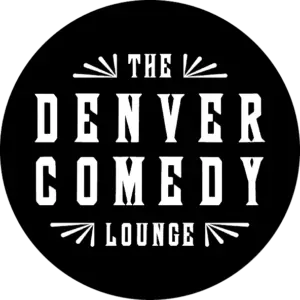Should I Try Stand Up Comedy?

Should You Try Stand-Up Comedy? Exploring the Benefits and Challenges Should You Try Stand-Up Comedy? Exploring the Benefits and Challenges Introduction: The Allure and Intimidation of Stand-Up Comedy The question of whether or not to try stand-up comedy is one that might seem intimidating at first. After all, the thought of standing on a stage, microphone in hand, trying to make a room full of strangers laugh can be daunting. But it’s also an exciting prospect, offering a unique opportunity to express yourself creatively, confront fears, and perhaps even discover a hidden talent. Whether you’re considering it as a serious pursuit or just a one-time experience, the benefits of trying stand-up comedy can be surprisingly profound. For more insights, see our article on Should I Try Stand-Up Comedy? Developing Public Speaking Skills Through Comedy One of the most compelling reasons to give stand-up a shot is the chance to develop your public speaking skills. Mastering the art of comedy requires you to be clear, concise, and engaging — all of which are key components of effective communication. Benefits of Public Speaking Skills Beyond Comedy Whether or not you decide to pursue comedy long-term, these skills can enhance your ability to communicate in both personal and professional settings. The confidence you gain from performing can translate into other areas of your life, helping you to handle everything from presentations at work to social situations with greater ease. If you’re ready to test your skills, you might want to check out our Friday Night Comedy Events. Self-Expression: Using Comedy as a Platform for Personal Stories Stand-up comedy also offers a unique platform for self-expression. It’s a space where you can share your thoughts, observations, and experiences in a way that resonates with others. Explore more about the role of comedy in self-expression in Stumbling into Standup. Therapeutic Aspects of Comedy Comedy allows you to turn personal struggles and challenges into material that not only entertains but also creates a sense of connection with your audience. This process of transforming pain into laughter can be incredibly therapeutic, helping you to process emotions and gain a new perspective on your own life. The Stand-Up Community: Finding Camaraderie and Support Another important consideration is the community that comes with pursuing stand-up comedy. Comedians often form tight-knit groups, supporting each other through the ups and downs of the craft. Opportunities for Social Connections in Comedy Being part of this community can provide valuable feedback, encouragement, and a sense of belonging. Endearing yourself to the scene can be as easy as showing up to open mics and booked comedy shows. Learn more about Denver’s vibrant comedy scene with our insights on Denver Comedy Scene in Flux. Conclusion: Trying Stand-Up as a Personal Challenge Finally, it’s worth acknowledging that stand-up comedy isn’t for everyone — and that’s okay. Some people may find the idea of performing in front of others too stressful or simply not enjoyable. But if you’re even slightly curious about it, trying stand-up can be a rewarding way to step out of your comfort zone and challenge yourself in a new way. Taking the First Steps in Comedy Reading a book about where to start, or just dabbling in the open mic circuit is a way to get the process going. Whether you end up pursuing it seriously or not, the experience of pushing yourself to do something difficult can be incredibly fulfilling, leaving you with a sense of accomplishment and perhaps even a few great stories to tell. Ready to dive in? Check out our list of Top Comedy Shows in Denver This Weekend for some inspiration. FAQs About Trying Stand-Up Comedy 1. Is stand-up comedy for everyone? Not necessarily. Some people may find performing in front of others too stressful or may simply not enjoy the experience. However, it can still be a valuable experience for those willing to try. 2. What skills can I develop from stand-up comedy? Stand-up comedy helps in developing public speaking, communication, and confidence. These skills can be beneficial in both personal and professional settings. 3. How can stand-up comedy be therapeutic? Comedy allows you to express personal challenges and experiences in a way that connects with the audience, often turning difficult emotions into humor, which can be a form of emotional release and self-understanding. 4. What kind of community can I expect in stand-up? Stand-up comedians often form supportive communities, providing feedback and encouragement. It’s an opportunity to connect with people from diverse backgrounds and experiences. 5. How do I get started in stand-up comedy? Begin by reading about comedy, observing stand-up performances, and attending open mics. Starting with small performances can help build confidence before committing to a bigger journey in comedy.
Laughter in the Time of Chaos: Why We Need Stand-Up Comedy Now More Than Ever

Laughter in the Time of Chaos: Why We Need Stand-Up Comedy Now More Than Ever Let’s face it, the world can feel pretty heavy these days. I opt for heavy cuz Shitty doesn’t always cut it. From news overload to social anxieties, a good laugh can feel like a rare gem. But stand-up comedy isn’t just about forgetting your troubles for an hour (although that’s a pretty awesome benefit too). Stand-up, and laughter in general, serves a crucial purpose, especially in our current climate, both environmental and political. Laughter is the Best Medicine (Literally): Studies show laughter offers a range of physical benefits. A good chuckle can reduce stress hormones, lower blood pressure, and even boost your immune system. It’s a workout for your core muscles and can leave you feeling energized. Comedy as Therapy (Without the Copay): Stand-up can be a powerful tool for processing difficult emotions. Comedians often tackle sensitive subjects, using humor to shed light on shared experiences and anxieties. Laughter can act as a release valve, helping us cope with stress and find some perspective. It’s also the funnest thing I’ve ever done in my life. I started comedy 20 plus years ago and now am lucky enough to run Denver Comedy Lounge, giving up and coming comedians a chance to find their funny and make some money. The Creative Outlet We All Need: We all crave ways to express ourselves creatively. Stand-up provides a platform for people to share their unique perspectives and observations. To take what happened that day, good or bad, and make some gosh-darn lemonade. Whether you’re delivering jokes or simply enjoying the show, stand-up fosters a sense of community and connection. There is truly nothing like live stand up. I’ve seen both sides of the business as well as a being a life-long comedy fan. The ups and downs and ins and outs are what it’s about. A true rollercoaster experience. You Don’t Have to Be a Clown to Be Funny: The beauty of stand-up is that humor comes in all shapes and sizes. There’s room for self-deprecating wit, observational humor, and even the occasional groan-worthy pun — my personal favorite:) The key is authenticity. The best stand-up comes from a genuine place, a willingness to share your unique take on the world. Comedy is truth, even if it is composed of multiple lies. So next time you’re feeling overwhelmed, consider seeking out a stand-up show or even a comedy class to get the juices flowing. You might be surprised by the laughter you find, the stress you release, and the sense of connection you experience. And who knows, maybe you’ll even discover a hidden funny bone within yourself!
Stumbling Into Standup

Stumbling Into Stand-Up I never thought I would write a book. I never wanted to own a comedy club. I never would have guessed I would be on TV. I never imagined I would be a stand-up comedian. I never… yet, I did all of those things. How could this be? I seem to have stumbled into everything I’ve done and am doing. I’m creatively clumsy. I went with the flow. I never had a plan. It’s not how it works for everyone, but for me, the “one thing leads to another” approach has been key. If you start walking, even without a destination in mind, you will eventually arrive somewhere, and then you adjust to the situation. You ask yourself, “Am I where I want to be?” or “Should I try something else?” And proceed accordingly. I suppose much of life is handled this way — constantly evaluating and adjusting. Perhaps this approach is what has brought you here, to a book about doing stand-up comedy. Maybe you’re a Lawyer who thinks “I could do this”, or somebody that grew up with parents dissuading you from fancy and frivolous fantasies and this is a “Fuck You”. And maybe you’re just at a crossroads of curiosity. Just because you buy the cookbook doesn’t mean you’ll actually make any of the recipes, but you want to cook more and be better at it, so you start with the easier recipes. Every comedian’s story could be described as “the journey of the ego.” The ecosystem of comedy, or as I like to call it: “ego system.” Once you get the sweet taste of an audience laughing and clapping and saying “you were great” you will think that you have discovered something specific to you. You will want to be the funniest on any show, and if someone bombs you will feel bad, but also grateful that it wasn’t you. There is a lot of selfishness inherent to the experience of performing stand-up. There are innumerable opinions about what a stand-up comic should be, aspire to, and how they should grow. Some people believe that if there is no growth in a comedian’s abilities, material, or performance, they should quit comedy. I argue that every level of comedian, as well as every caliber of comedy show — from an open mic in a coffee shop to a big sold-out theater, the crusher and the bomber, is integral and necessary. Just as a forest is composed of insects, majestic trees, and dead leaves, so too must an entertainment ecosystem contain similar elements. These elements are necessary for self-reflection and personal growth. The simple math is the more you do something, the better you will get at it no matter what it is, but comedy isn’t simple math. It is politics, philosophy, sociology, history, language, art, performance and most of all, ego.
